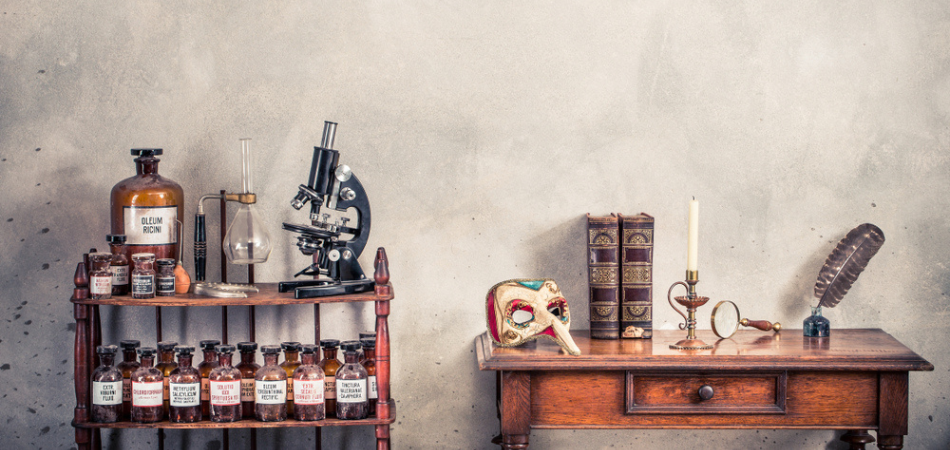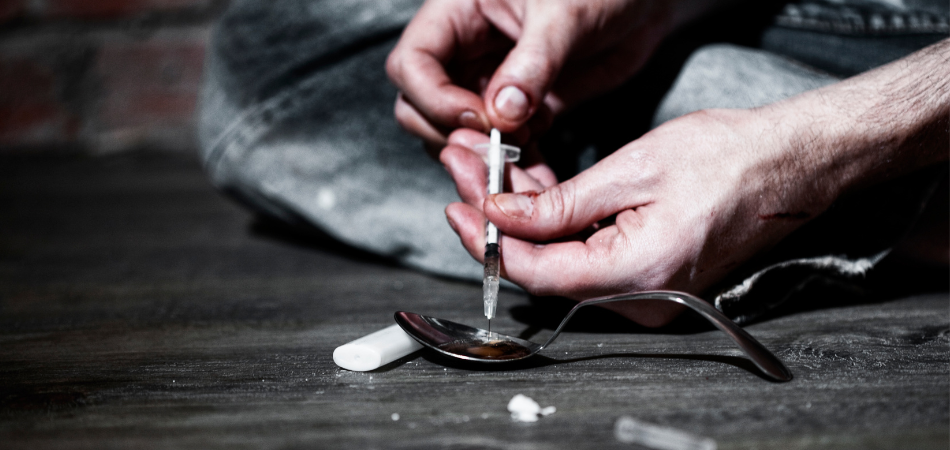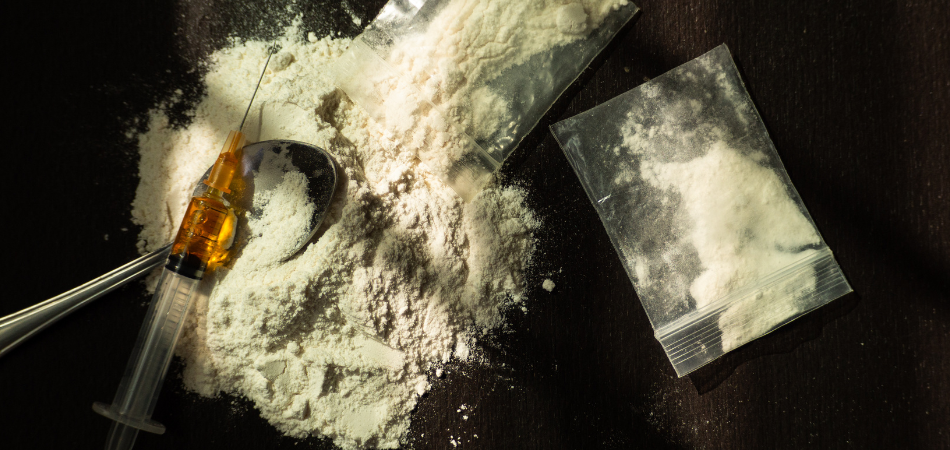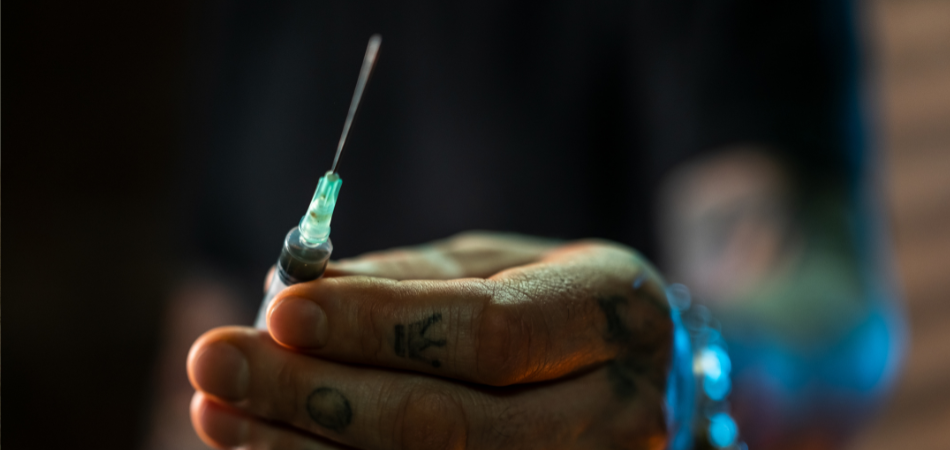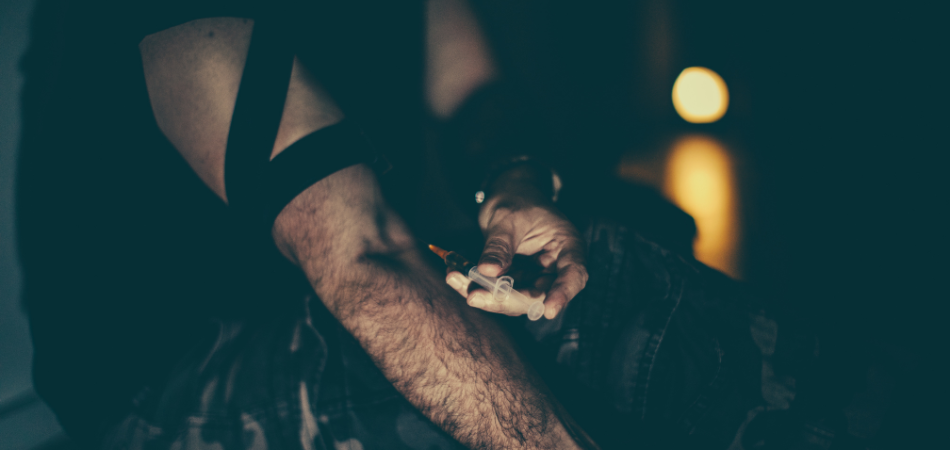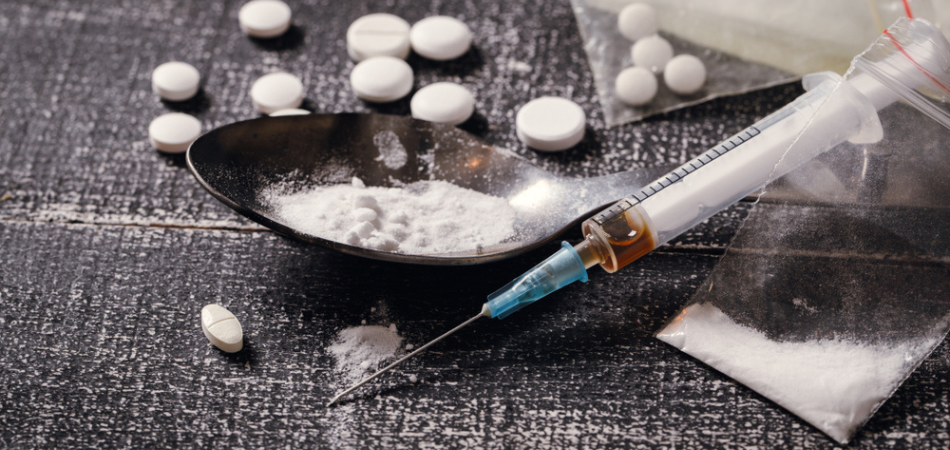
Written by:

Medically Reviewed by:
Last Updated:
October 9th, 2025
Heroin rehab
Where the allure of heroin threatens to consume and destroy, a ray of hope emerges, offering a lifeline towards redemption. This article delves into the transformative realm of heroin rehab, where shattered lives find solace and a renewed sense of purpose.
With each success story at Oasis Bradford, we witness countless individuals reclaim their lives, restore their well-being, and redefine their identities, liberated from the chains of heroin that once held them captive. Join us on an enlightening journey through heroin rehab, shedding light on the profound effect rehab can have.
What is heroin rehab?
Recognising the signs of heroin abuse is an essential step towards breaking away from the downward spiral you may find yourself in.
We will explore the signs of heroin misuse, from behavioural changes to physical symptoms. However, it is important to remember that determining whether you need heroin rehab involves self-reflection and honest evaluation of your relationship with heroin.
Here are some behavioural signs that may indicate the need for heroin rehab:
- Loss of control: Do you find yourself struggling to stop or control your heroin use despite negative consequences, such as strained relationships, financial troubles, or legal issues? This may be a strong indication that rehab is necessary.
- Increased tolerance: If you require higher doses of heroin to achieve the desired effects or if the drug’s effects have diminished over time, it may be a sign of developing tolerance, which often warrants professional help.
- Withdrawal symptoms: Experiencing physical and psychological withdrawal symptoms, such as irritability, nausea, insomnia, or anxiety when attempting to stop using heroin, can indicate that your body has become dependent on the drug and requires further intervention.
- Neglecting responsibilities and activities: If heroin use begins to interfere with your daily life, causing you to neglect important obligations, such as work, school, or family responsibilities, it suggests that your heroin use has reached a problematic level.
- Failed attempts to quit: If you have repeatedly tried and failed to stop using heroin alone or with minimal support, seeking professional help through rehab can provide the structure and guidance needed.
Several physical signs that may indicate the need for heroin rehab can include:
- Needle marks or track marks: If you notice any needle marks or track marks on your skin, particularly in your arms or other areas where injections are commonly administered. These visible puncture wounds or scars can indicate your dependency on heroin.
- Weight loss: Be aware of any significant weight loss and changes in your physical appearance. Heroin use can cause you to lose a significant amount of weight and experience a general decline in your physical health. You may appear gaunt, have pale or sallow skin, and exhibit signs of poor hygiene.
- Changes in pupils: Heroin use often causes your pupils to become noticeably constricted, appearing as pinpricks. However, in instances of a heroin overdose, your pupils may dilate. Watch out for bloodshot or glassy eyes, as they can also indicate the drastic effect of your heroin use.
- Slurred speech: Notice if you experience slurred speech and impaired coordination. Heroin can slow down your reflexes, impair your coordination, and make it difficult for you to speak clearly. If you consistently display these symptoms, it may suggest the need for you to consider heroin rehab.
- Chronic respiratory issues: Be mindful of any chronic respiratory issues you may be experiencing. Heroin suppresses your central nervous system, leading to respiratory depression and related problems. Frequent coughing, shortness of breath, and other respiratory issues may be signs of long-term heroin use that require professional intervention.
It’s important to note that these physical signs can vary depending on the individual and the duration and intensity of heroin use, among other factors. However, if you are concerned about your or a loved one’s heroin use, consulting with a healthcare professional can help you assess your situation and guide you toward the most appropriate course of action.
What is involved in heroin rehab?
Heroin rehab is a highly effective solution for addressing the root causes of your addiction and supporting your long-term sobriety. Our comprehensive rehab programmes not only focus on helping you overcome your dependence on heroin but also target your mental health and the underlying factors that may have contributed to your drug use. By addressing these issues, we aim to provide you with the tools and support necessary for a lifetime of wellness.
At Oasis Bradford, we employ a variety of evidence-based treatment methods tailored to your individual needs and overall health. Our goal is to address the underlying causes of your drug addiction and provide the support you need to achieve lasting recovery. Our treatment approaches include:
- Heroin detox: Our 24/7 care during detox ensures a safe and supportive environment for withdrawal. This initial step sets the stage for the rest of your treatment journey.
- Meditation and mindfulness: Learning new approaches to mindfulness and adopting a positive outlook on life can enhance your overall well-being and resilience.
- Dialectical behaviour Therapy (DBT): DBT takes from cognitive behaviour therapy and focuses on identifying and changing the negative thought patterns that could hinder your progress.
- 12-step: This structured approach allows you to focus on personal growth and navigate the recovery process alongside others facing similar challenges.
- Group therapy: Participation in group sessions with individuals who share similar struggles provides a supportive and understanding environment. It fosters mutual guidance, encouragement, and the sharing of experiences.
- Art therapy: Through creative activities, you can uniquely express yourself, explore your emotions, and find alternative ways of coping with stress and triggers for heroin use.
- Individual therapy: Working one-on-one with a therapist allows personalised attention, addressing your specific concerns, and developing strategies for overcoming obstacles in your heroin recovery.
- Family therapy: Involving your family members in treatment helps improve communication, resolve conflicts, and rebuild trust, creating a solid foundation for your new life without heroin.
Aftercare also plays a crucial role in maintaining your sobriety once you have completed our rehab programme. At Oasis Bradford, we understand the significance of continued support and resources during this ongoing process. We provide a year’s worth of free aftercare to ensure your long-term success and include weekly workshops and expert guidance from a community you are familiar with and can trust. We are committed to standing by your side beyond completing our programme because your recovery remains our utmost priority.
Why heroin rehab is important
Heroin rehab offers a range of physical and mental benefits that contribute to your overall well-being and successful recovery. Here are some of the key benefits:
Physical Benefits
- Safe detox: Heroin rehab provides supervised medical drug detox, ensuring a safe and controlled withdrawal process. This helps minimise the physical discomfort and potential health risks of heroin withdrawal.
- Physical healing: Heroin abuse can take a toll on your body, but rehab helps restore physical health through proper nutrition, exercise, and medical care.
- Reduced health risks: Heroin addiction increases the risk of a number of health complications, including infectious diseases, respiratory problems, heart issues, and organ damage. Engaging in rehab reduces these risks by breaking the cycle of drug abuse and promoting healthier behaviours.
- Pain management: Many individuals turn to heroin due to chronic pain or as a way to self-medicate. Alternative pain management strategies in rehab are explored, providing healthier and more sustainable ways to cope with pain.
Mental and Emotional Benefits
- Emotional stability: Prolonged heroin use can cause emotional instability, including mood swings, depression, anxiety, and irritability. Heroin rehab helps individuals stabilise their emotions through therapy, counselling, and medication if necessary.
- Cognitive enhancement: Overusing heroin can impair cognitive function, memory, and decision-making abilities. Through therapeutic interventions, rehab helps regain mental clarity, enhance cognitive skills, and develop healthier thinking patterns.
- Emotional coping skills: Heroin rehab equips individuals with effective coping mechanisms to deal with stress, triggers, and life challenges without turning to heroin.
- Improved self-esteem: In rehab, individuals rebuild their self-confidence, develop a positive self-image, and cultivate a sense of self-worth through therapy, support, and personal growth, damaged throughout heroin use.
- Enhanced relationships: Using heroin can significantly strain relationships with family, friends, and loved ones, but rehab provides opportunities for healing these relationships through family therapy, communication skills training, and building healthy support networks.
By addressing both the physical and mental aspects of addiction, heroin rehab offers a comprehensive approach to recovery, allowing individuals to experience improved physical health, emotional well-being, and a higher quality of life.
Heroin rehab at Oasis Bradford
We are dedicated to supporting you as you start on your path to sobriety from heroin, and we are fully committed to assisting you in overcoming any challenges that may arise during your journey.
Whether you have inquiries or apprehensions regarding our heroin rehab programme or want to speak with someone who understands your experiences, contact our admissions team today. We are here to listen, provide guidance, and offer the help you need to overcome your battle with heroin use.





